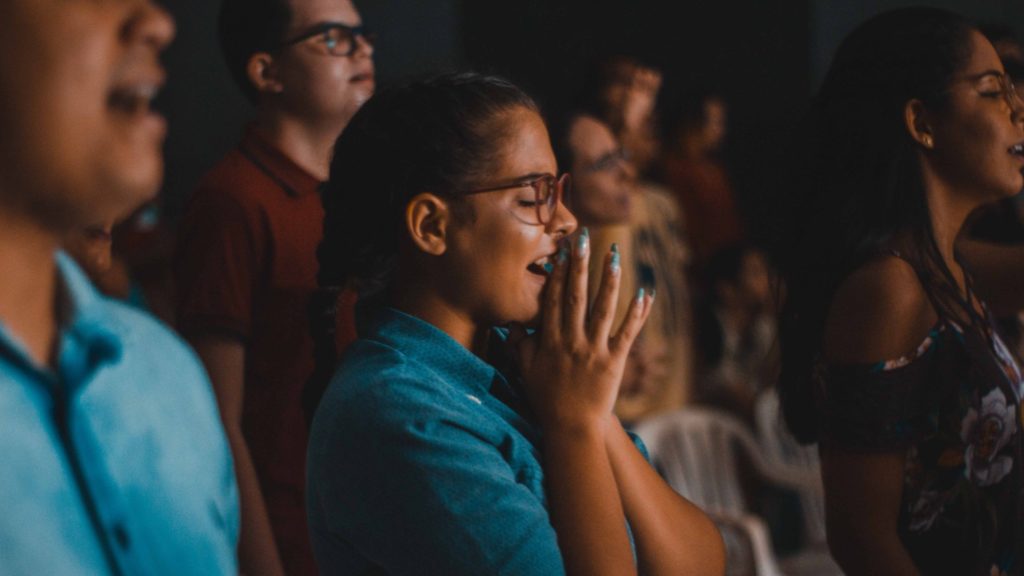I was not very excited about my first Sunday at my church three years ago. Still aching from the closure of the church I had attended for years, I missed the people I was used to seeing every week. It took me a solid year of back-and-forth before I decided I would stay at this new church, and it took me even longer to feel like I was finding my place in it.
At first glance, my church may not look like the ideal church for singles. We’re a smaller congregation with less than 200 people, most of whom are families with kids. We don’t have a singles ministry, a young adult group, or even Sunday school.
But since my first week at this church, I’ve been surprised at how many single men and women are active here. There are singles who run the sound system (a complicated job in a time of live streaming), coordinate showers and meal signups, provide or lead music, organize events, and preach on Wednesday nights.
Any of these singles could have looked at the demographics of this church and decided it wasn’t what they needed. Instead, they got involved.
The new church on the block
“But as it is, God arranged the members in the body, each one of them, as he chose,” the Apostle Paul wrote. “If all were a single member, where would the body be? As it is, there are many parts, yet one body.”
The Bible is clear that God’s people are called to be in community with other Christians. “A lone-ranger Christian doesn’t make the best witness for Christ,” one author points out. But our participation in a church is for more than our evangelistic efforts; community with other believers is one of God’s main tools for our own encouragement and growth.
The Christian teaching of “church” was very new in Paul’s time. For centuries the Jews had prided themselves in their temple, and ever since its completion it had been central to proper worship of God. But now God’s people met in homes or even by the river. No longer was the location so important. No longer was the worship defined by the building. Now a “church” was defined by the people who gathered together instead of where they met.
No perfect church
While the Bible encourages and even commands gathering together as believers, nowhere do we find that a perfect church is expected or even possible. Over and over in Paul’s letters, he addresses division and scandalous sin, and sometimes pleads with specific people to restore relationships with one another.
Many of these problems continue today. Some churches have real and very serious issues, and others teach questionable doctrine. There are legitimate reasons to leave a church due to its own shortcomings.
But for many — perhaps even most — of us, our churches are full of real, imperfect, genuine, well-intentioned, caring people who can’t do everything. Of course, none of us can do everything.
Not every church service will feel like a deeply fulfilling experience. We didn’t sing any of my favorite songs last week, and there have been some Sundays I was more conscious of my readiness for lunch than the topic of the sermon. None of us are part of a perfect church because churches are made up of people. And none of us are perfect.
The fingers pointing back at me
Joni Eareckson Tada was sitting in front of her husband Ken’s government class. Ken had asked her to talk to his high school students about the issue of assisted suicide, and the class listened with interest to Joni’s story of her diving accident and the despair and depression she felt afterward. Then Joni asked for the students’ thoughts.
“One student shared how his mother was getting demoralized by the burden of taking care of his sister with developmental delays,” Joni later wrote. “He felt society should, in his words, ‘do something.’” Joni pushed the student to tell her what exactly he thought society should do, then she asked him what he was doing to help his mother and sister.
“Your actions, your decisions, matter,” Joni told the class. “What you do or don’t do has a ripple effect on everyone around you…You, my friends, are society.”
When I was a kid, I remember adults telling me that when I pointed my finger at someone in blame, three of my own fingers point back at me. It’s easy to look at our churches and see what isn’t being done (or done well). But maybe when I see something that could be improved, I should examine myself first.
Jesus brought us together with those in our church. Instead of focusing on the faults of our fellow church members, let’s focus on the blessings we receive from our community while we work to find our work within it.
Do you see an area in your church that needs improvement? Pray about your own involvement, and then ask the appropriate person at your church if you could help in that area.
After all, we are the church.
Copyright 2021 Lauren Dunn. All rights reserved.












